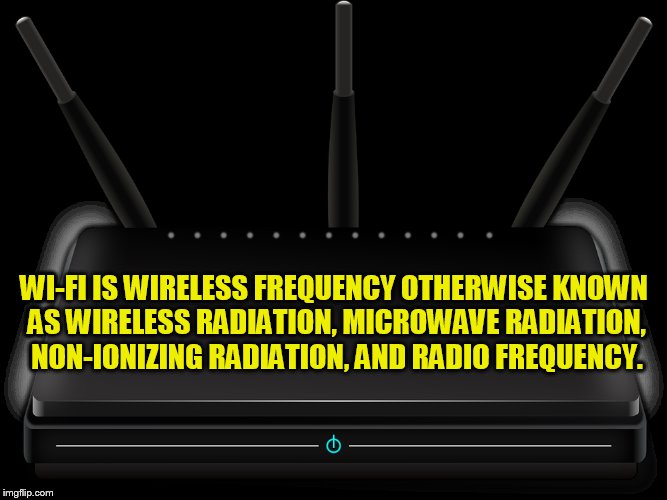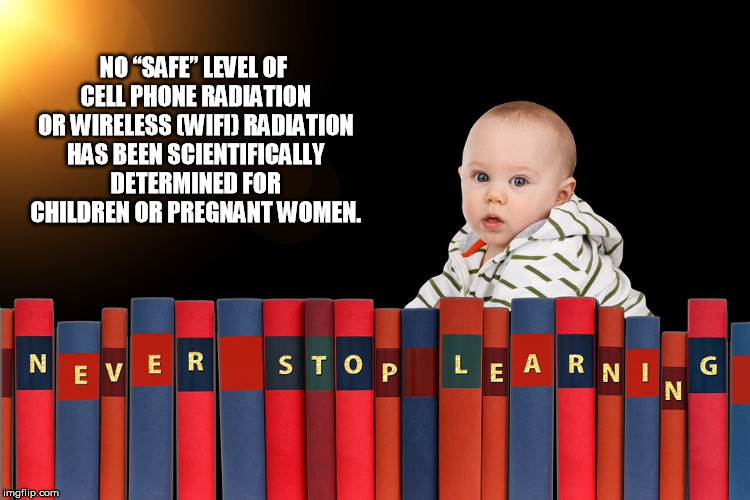 By B.N. Frank
By B.N. Frank
High-speed broadband connections can be achieved more safely and securely with hardwired internet connections. Nevertheless, the Biden Administration as well as various government agencies – including the U.S. Department of Agriculture – continue to allocate funds for broadband primarily via wireless connections. The Federal Communications Commission (FCC) continues to endorse (and sometimes fund) wireless connections too – on land and from space – despite a federal court ruling in favor of petitioners who sued the agency for NOT updating wireless radiation guidelines (including 5G) since 1996. Despite the 2021 court order, the agency has still not addressed this or that Electromagnetic Sensitivity (ES) is a federally recognized disability. That’s why the FCC chairwoman’s crusade to expose Americans to even more hazardous wireless radiation may come as no surprise.
From Inside Towers:
Rosenworcel Supports Expanding E-Rate Funding for School Bus WiFi
FCC Chairwoman Jessica Rosenworcel called on her colleagues to support new efforts to allow E-Rate funding to support WiFi on school buses. She’s also proposed using E-Rate funding to support WiFi hotspots so that public and school libraries, and schools can check them out to patrons or students in need.
The E-Rate program started in 1996, to distribute funds to libraries for basic internet connections. Over the years, the FCC has updated it from a program to connect libraries and schools to covering services like installing WiFi throughout the building.
“This could make a big difference in rural areas where students spend long hours on school buses just to get to class and home again,” said Rosenworcel in a speech to the American Library Association’s annual conference this week. “We can turn ride time into connected time for homework. We can take E-Rate policies from two decades ago that supported mobile phones on these buses and modernize them so we have WiFi on wheels—and students can Learn Without Limits.”
She said libraries can help fill the digital divide. “Libraries have computer labs. They have classes to teach digital skills. And they help enroll people in our programs to support internet for all, like the Affordable Connectivity Program,” explained Rosenworcel. “These efforts are on top of the day-to-day work you do to help people navigate information, get the facts they are searching for, the services they require, and the support they need to participate in modern life.”
Senate Commerce Committee member Senator Ed Markey (D-MA) supports the proposals. “With the new school year just a few months away, we cannot allow millions of students across the country to lose access to broadband,” said Markey. “We urge the FCC to swiftly adopt this commonsense proposal to expand E-Rate funding to include WiFi hotspots and internet support for school buses.”
In response to the pandemic, Congress created a program to help meet the adapting connectivity demands of libraries and schools—the Emergency Connectivity Fund. This $7.17 billion fund was designed to make sure that libraries and schools could connect patrons and students at home, with funding for devices and connectivity. To date, the program has helped over 17 million students get connected to their schools and teachers, notes the Commission.
The proposed changes to the E-Rate program will require a full vote of the Commission.
By Leslie Stimson, Inside Towers Washington Bureau Chief
Adding insult to injury, a group of telecom experts who call themselves The Irregulators have already proven that Americans have already paid for high speed broadband deployment via safer and more secure copper landlines and fiber optics to the premises (FTTP) (see 1, 2) rather than less safe and less secure biologically and environmental harmful Wi-Fi and 5G. Of course, the FCC has been ignoring that too.
Activist Post reports regularly about broadband, wireless, and unsafe technologies. For more information, visit our archives and the following websites:
- Environmental Health Trust
- Americans for Responsible Technology
- Children’s Health Defense
- Electromagnetic Radiation Safety
- Physicians for Safe Technology
Become a Patron!
Or support us at SubscribeStar
Donate cryptocurrency HERE
Subscribe to Activist Post for truth, peace, and freedom news. Follow us on SoMee, Telegram, HIVE, Flote, Minds, MeWe, Twitter, Gab, and What Really Happened.
Provide, Protect and Profit from what’s coming! Get a free issue of Counter Markets today.


Be the first to comment on "Despite Health & Security Risks, FCC Chairwoman Wants to Expand Funding for WiFi on School Buses, Hotspots for Library Patrons and “students in need”"